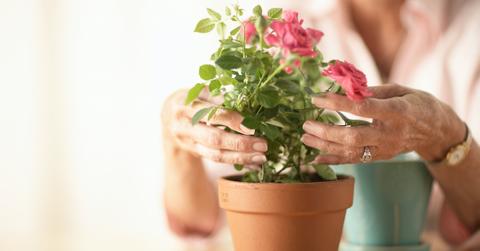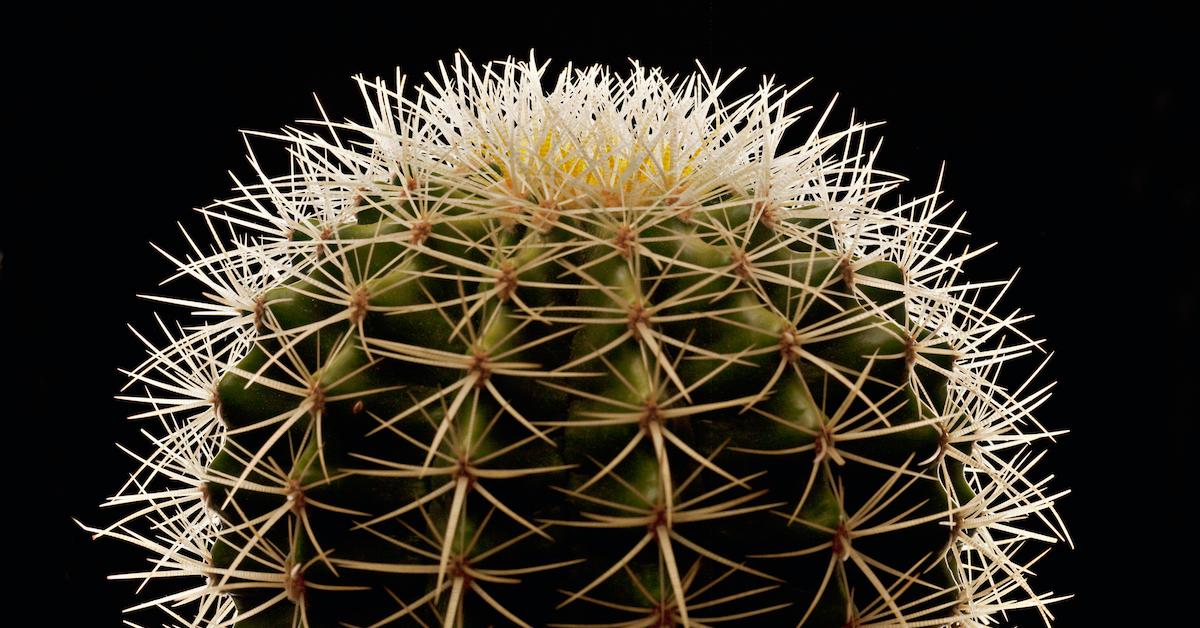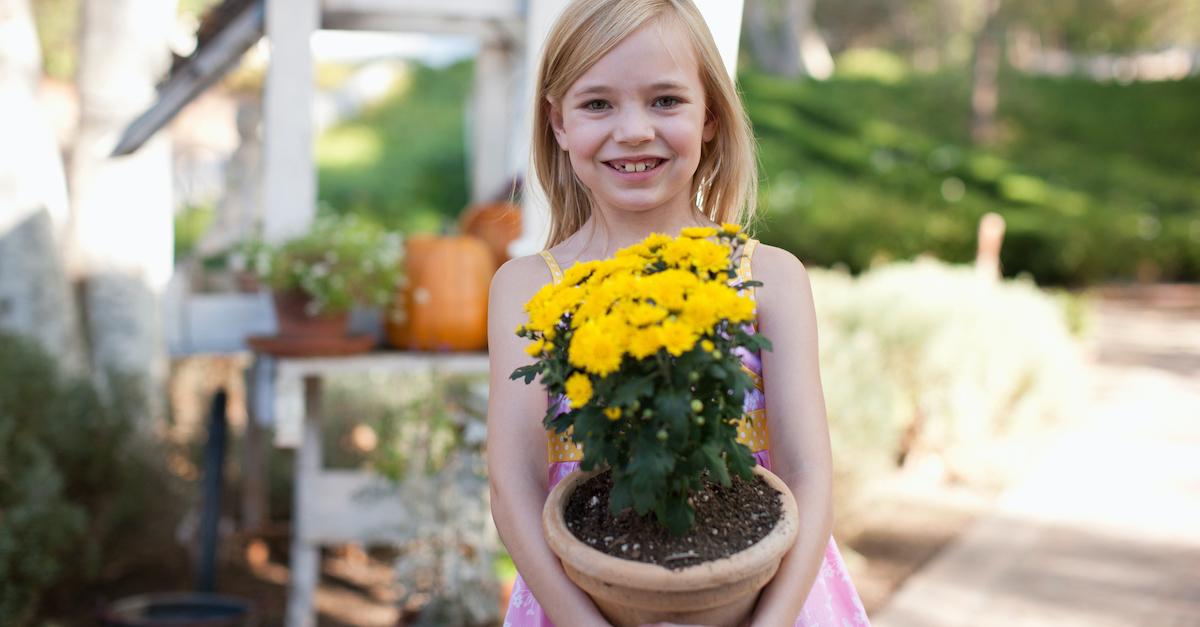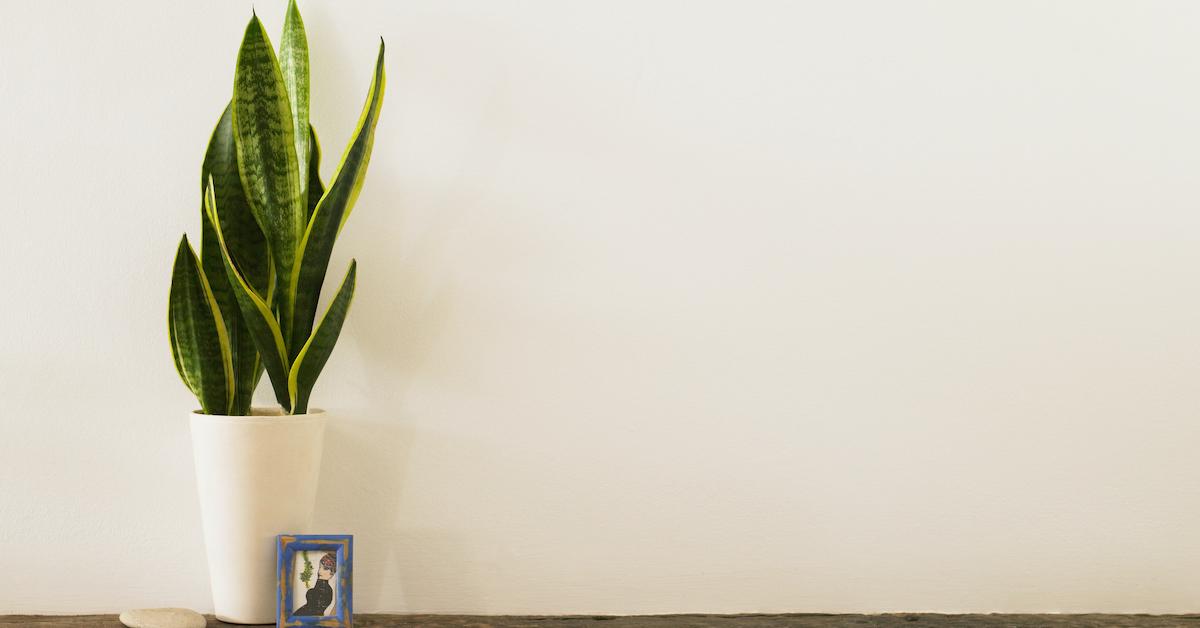Your Houseplants May Contain This “Forgotten Fossil Fuel”
Updated May 18 2021, 12:08 p.m. ET

Amid your daily doom-scroll session, you may have come across a few recent articles noting the potentially harmful aspects of owning houseplants. Without even reading them, avid plant parents and aspiring plant parents alike are left spiraling, wondering if our plant obsession isn't truly as healthy for us as we'd previously thought. This notion, however, is entirely based on how much peat your plant's soil contains — but what is peat? Why is it harmful?
Keep reading for more about the controversial chemical that's commonly found in the soil of houseplants, some healthier and greener alternatives, ways to avoid peat, and more. Your harmless houseplant obsession really doesn't have to be as dark as they say it is.

What is peat?
Peat is a naturally-found fuel that contains decomposing plants among other organic materials, according to Britannica. It's most often found in moist climates like swamps, bogs, and fens, with high levels of acidity that prevent plants from completely decaying. There are unusually large deposits in Canada, China, Russia, and the U.S., and it's naturally created within the first step of forming coal. There are many different types of peat, which are characterized based on chemical makeup.
Peat has many uses — it's sometimes used as a long-burning alternative to firewood, for cooking, to create electricity, and to treat urban runoff. In the world of plants, however, peat is used in a wide range of situations. It's used to retain moisture in sandy soils, facilitate liquid flow in clay-based soils, and increase acidity in many potting soils. Despite the fact it's a natural additive, though, it has many downsides.

Is peat a fossil fuel?
Although peat is occasionally constituted as a “slowly renewable energy” it isn't technically labeled as a fossil fuel in the eyes of the IPCC. However, National Geographic refers to peat as the "forgotten fossil fuel." It emits greenhouse gases — similar amounts to fossil fuels — and it can light on fire just as easily as gas or diesel. Although there is a lot of it, as opposed to natural gases, it can be just as dangerous as traditional non-renewables.
Peatlands — or wetlands that store peat — store a third of soil carbon worldwide, according to The Washington Post. Harvesting and using peat releases notable amounts of carbon dioxide into the atmosphere, which is one of the leading problems behind the ongoing climate crisis. Peat is also extremely flammable, as seen in Indonesia in 2015, when wetlands were being cleared to create plantations and it started a massive fire.

Alternatives to peat, and sustainable houseplant tips:
As previously mentioned, soil with peat moss is a common item in the realm of household plants, as peat is lightweight, provides adequate drainage, and helps retain moisture. But, for the sake of our health and our planet, it may not be the best option. Smart Garden Guide recommends instead opting for peat alternatives, such as coconut coir, which uses outer parts of the coconut seed, or soil from your backyard compost.
According to Our House Plants, your green babies love any type of potting soil that's open and loose, that lets its roots grow through seamlessly. Peat-Free is a popular product that's comprised of various organic materials, including coir, green compost, shredded bark and other inorganic materials, such as sharp sand and rock wool.
Do a little research when repotting your houseplants — your plant collection doesn't have to be the demise of you and your low-impact lifestyle, we promise.
UPDATE, Tuesday, May 18, 12:07 p.m. ET: The U.K. government just announced that as of 2024, peat compost sales will be completely banned nationwide, according to The Guardian. The country also announced plans to restore 35,000 hectares of peatland by 2025, as they sequester three times as much carbon as forests, and potential phasing out the use of peat in all horticultural practices.
The University of Sussex's Professor Dave Goulson told The Guardian: “The [peat compost] ban must be meaningful and include the horticulture industry, and the importation of peat in potted plants. Anything less looks like greenwashing. Globally, peatlands store half a trillion tonnes of carbon, twice as much as the world’s forests. Unearthing this precious store of carbon is a needless ecological disaster.”
That said, we're looking forward to seeing this peat ban in action.